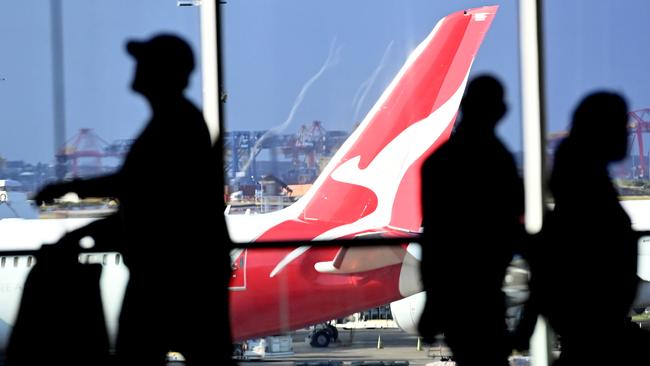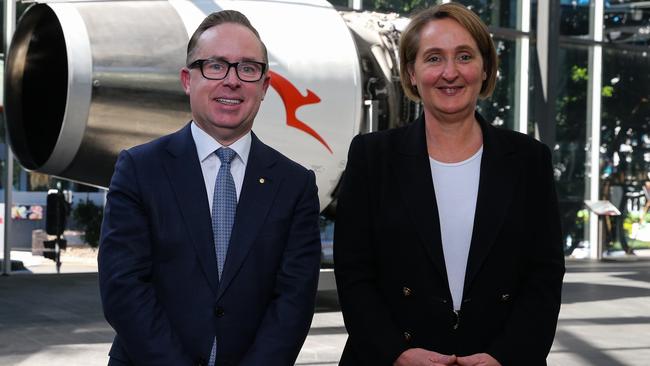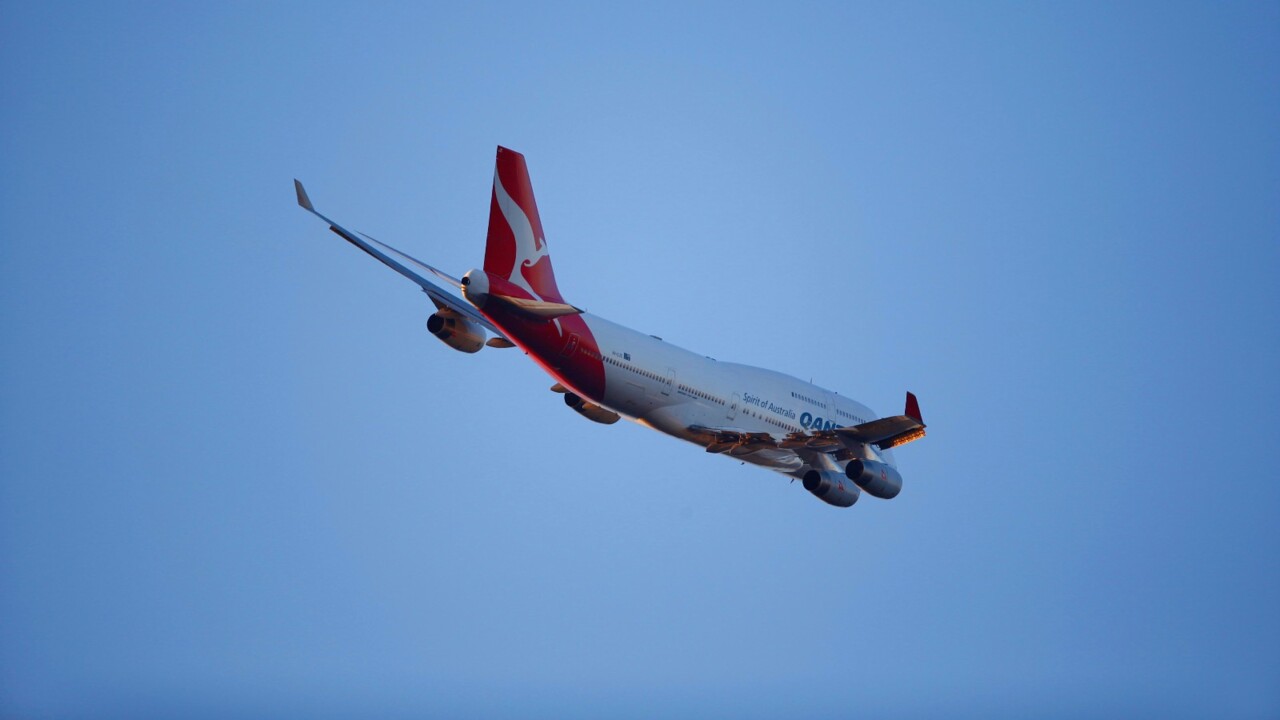Qantas customers to be given option to cut emissions on flights through new sustainable fuel offset program
Passengers booking on Qantas flights may soon be able to tick a box to purchase sustainable aviation fuel as a way to offset their emissions.

Passengers booking on Qantas flights may soon be able to tick a box to purchase sustainable aviation fuel as a way to offset their emissions, with the airline flagging an expansion of its carbon offset program.
Qantas sustainable aviation fuel chief Graeme Potger told a Bioenergy Australia conference in Brisbane on Tuesday that the airline would soon implement a feature allowing customers to offset their emissions by purchasing sustainable aviation fuel when booking flights with the airline.
Sustainable aviation fuel is produced from a variety of biogenic sources – such as used cooking oil, council waste and agricultural residues – and has the potential to reduce emissions by up to 80 per cent compared with conventional jet fuel.
Demand for sustainable aviation fuel is increasing after airlines including Qantas, American Airlines, British Airways, Cathay Pacific and Japan Airlines committed to using 10 per cent of the fuel in their overall fuel mix by 2030 and 60 per cent by 2050, as part of the aviation sector’s global pledge for net zero by 2050.
Mr Potger said its expanded offsets program would happen “pretty soon”, with customers able to invest in direct purchasing of sustainable aviation fuel or to make contributions towards industry development. He said sustainable fuel was “the only answer for our long-haul aircraft”.
“If you look at what other airlines are doing, they are either directing it to incremental SAF purchases or in the case of United, they are directing those contributions towards industry development,” Mr Potger said. “We are doing a lot of market research now to see what resonates with our customers.”

Major fuel producer Neste told the conference that Australia needed to do more to meet its 2030 target, and that the nation would fall short by about 14 per cent if it continued on the current trajectory.
Neste public affairs head Stephen Bartholomeusz said biofuels provided an opportunity for Australia to reduce that gap, pointing to Australia’s large supply of feedstock, but warned Australia lacked the regulatory framework needed to establish a domestic biofuels industry.
Bioenergy Australia has previously urged Labor to build a domestic industry as a priority, estimating that a domestic fuel industry would be a $3bn boost to GDP per annum and would create about 8000 new jobs by 2030.

“If you want to keep feedstock in the country, you have got to have a domestic industry and to have a domestic industry, you have got to have enabling policies,” Mr Bartholomeusz said.
CSIRO Futures senior manager Max Temminghoff warned Australia’s lack of domestic sustainable aviation fuel industry would leave the nation exposed to global energy shocks or geopolitical instability.
“We need to put a real value on liquid fuel security,” Mr Temminghoff said.
“Our massive reliance on imported liquid fuels has been pointed out for decades, and I think the risks are only getting higher with recent geopolitical events and Covid. It is becoming clearer and clearer how important sovereignty is and sovereign fuel production will be.”







To join the conversation, please log in. Don't have an account? Register
Join the conversation, you are commenting as Logout